Neuroscience
-
 Neuroscience
NeuroscienceYour red is my red, at least to our brains
Despite philosophical debates, colors like red may spark similar brain activity across individuals, new research suggests.
-
 Neuroscience
NeurosciencePopular weight-loss drugs may ease migraines too
A GLP-1 drug led to fewer days with headaches, a small pilot study of migraine sufferers shows. It may work by lowering pressure inside the head.
-
 Neuroscience
NeuroscienceAt early ages, autism in girls and boys looks similar
A new study of more than 2,500 children under 5 found little difference in autism symptoms between boys and girls.
-
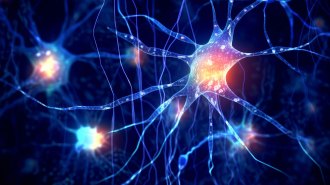 Neuroscience
Neuroscience‘Silent’ cells play a surprising role in how brains work
New studies show that astrocytes, long thought to be support cells in the brain, are crucial intermediaries for relaying messages to neurons.
-
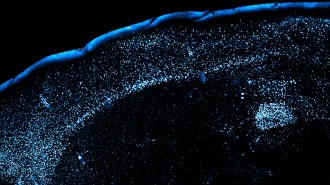 Neuroscience
NeuroscienceMouse brains hint at why it’s so hard to forget food poisoning
Scientists mapped a neural circuit that associates an unfamiliar flavor with food poisoning symptoms in mice.
By Elise Cutts -
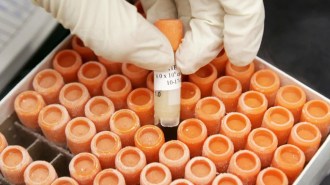 Neuroscience
NeuroscienceEarly Parkinson’s trials revive stem cells as a possible treatment
The phase I clinical trials showed stem cell transplants for Parkinson’s disease appear to be safe and might restore dopamine-producing brain cells.
-
 Neuroscience
NeuroscienceMemory manipulation is the stuff of sci-fi. Someday it could be real
Experiments point to how scientists can strengthen or weaken memories, which may eventually lead to treatments for Alzheimer’s disease or PTSD.
-
 Health & Medicine
Health & MedicineA deep brain stimulation volunteer discusses life after depression
In this bonus episode of The Deep End, you’ll hear an update from Jon Nelson, who is living what he calls his "bonus life."
-
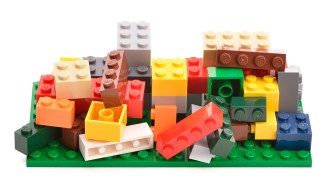 Neuroscience
NeuroscienceHuman memory is flawed. But a new book says that’s OK
The new book Memory Lane convincingly demonstrates how memories are like Lego buildings that are constantly being rebuilt.
-
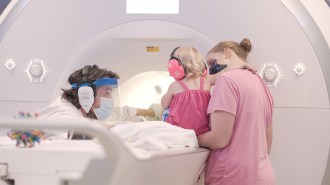 Neuroscience
NeuroscienceBabies can form memories, and they do it a lot like adults
A brain scanning study of babies reveals how some of the earliest memories are made.
-
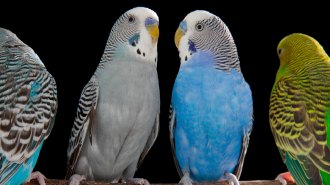 Neuroscience
NeuroscienceParrots and humans share a brain mechanism for speech
Brain activity in vocalizing budgerigar parrots showed a pattern that harkened to those found in the brains of people.
-
 Neuroscience
NeuroscienceParenthood may help the brain stay young
A study of nearly 38,000 adults shows that the number of kids correlates with coordination of brain regions’ activities — regardless of parents’ sex.